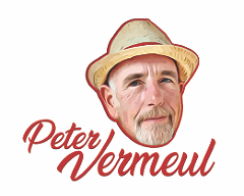porn anal Casino Sitesi | Türkçe casino sitesii
The rise of social media and mobile applications has further changed the landscape of communication, creating new avenues for connection and expression. Beginning in the late 20th century, the Internet has emerged as one of the most transformative forces in human history. Its rapid evolution has reshaped how we communicate, access information, and conduct business, fundamentally altering the fabric of society. The impact of the Internet on society is profound, influencing various aspects of daily life, from personal relationships to global economies. This article explores the multifaceted effects of the Internet on society, highlighting both its benefits and challenges. By facilitating instantaneous communication, the Internet has revolutionized the way people connect with one another.
This commitment to empathy can lead to transformative changes in our relationships, workplaces, and communities, ultimately contributing to a more harmonious society. It enhances our relationships, promotes conflict resolution, and fosters a positive workplace culture. Empathy is essential for social cohesion, addressing global challenges, and supporting mental health. By embracing empathy, we can create a world that values understanding, compassion, and connection. As we navigate the complexities of life, let us remember the power of empathy and strive to make it a guiding principle in our interactions with others.
By celebrating this diversity, societies can cultivate a more inclusive understanding of culture that honors the contributions of all communities. This appreciation for cultural diversity can lead to greater empathy and respect among individuals, fostering a sense of global citizenship that transcends borders. In summary, folklore is a vital element of national culture, serving as a bridge between the past and the present. It preserves the values and traditions that define communities, fosters social cohesion, and inspires creativity. As societies continue to evolve, the challenge lies in ensuring that folklore remains a living tradition that resonates with contemporary audiences. Through community engagement, technological innovation, and collaboration with academic institutions, we can safeguard the rich tapestry of folklore for future generations.
AI technologies, particularly machine learning algorithms, have emerged as powerful solutions to manage and interpret this data. By automating data analysis, AI allows researchers to focus on hypothesis generation and experimental design, ultimately leading to more efficient and effective research processes. Furthermore, AI’s ability to identify patterns and correlations within large datasets is revolutionizing fields such as genomics and proteomics.
porn anal Bonus Hediyesi Ne Kadar?
These programs have demonstrated effectiveness in reducing symptoms of anxiety and depression, providing individuals with practical tools to cope with stress and emotional challenges. Empirical studies have shown that participants in MBSR programs experience significant reductions in anxiety and depressive symptoms, as well as improvements in overall well-being. By integrating meditation into therapeutic practices, mental health professionals can offer clients a holistic approach to healing that addresses both the mind and body. Research has indicated that regular meditation practice can lead to lower blood pressure, reduced chronic pain, and improved immune function. These physical benefits are likely linked to the stress-reducing effects of meditation, as chronic stress is known to contribute to a variety of health issues. By promoting relaxation and reducing stress, meditation can serve as a complementary approach to traditional medical treatments, enhancing overall health and well-being.
This correlation suggests that music education can be a valuable component of a well-rounded curriculum, fostering both creativity and intellectual growth. For instance, patients with neurological disorders such as Parkinson’s disease or stroke often benefit from music therapy, as it can help improve motor skills and speech. The rhythmic elements of music can stimulate movement and coordination, making it a powerful tool for rehabilitation. Listening to calming music can lower cortisol levels, the hormone associated with stress, leading to a more relaxed state. Group activities such as singing in a choir or participating in a drum circle can enhance social bonds and promote feelings of belonging.
- This biological response explains why people tend to feel more energetic and optimistic on sunny days.
- During the COVID-19 pandemic, for example, many turned to poetry as a means of coping with isolation and uncertainty.
- Educators must strive to create a blended learning environment that leverages technology while preserving the personal touch that is so essential to effective teaching and learning.
- Whether it is a love for music, sports, or a shared commitment to social causes, these shared interests create opportunities for connection and bonding.
- They understand that conflicts are a natural part of any relationship and are willing to work through them.
- Research has shown that certain musical elements, such as tempo, key, and harmony, can trigger distinct emotional responses.
By subtly mirroring the gestures and expressions of others, we can enhance our communication and foster a more collaborative atmosphere. Just as a skilled negotiator uses various tactics to achieve their goals, individuals can leverage non-verbal communication to navigate complex social situations. Understanding how to use non-verbal cues strategically can empower individuals to achieve their desired outcomes in various interactions.
Plato, a student of Socrates, expanded on his teacher’s ideas and introduced the concept of ideal forms. In his famous work, “The Republic,” Plato envisioned a just society governed by philosopher-kings, individuals who possess both wisdom and virtue. His allegory of the cave illustrates the difference between the world of appearances and the world of reality, emphasizing the importance of philosophical education in achieving true knowledge. Aristotle, a student of Plato, took a different approach by focusing on empirical observation and categorization. Aristotle’s emphasis on logic and reason laid the foundation for the scientific method, influencing not only philosophy but also the development of the natural sciences. His concept of virtue ethics, which emphasizes character and the importance of moral virtues, continues to resonate in contemporary ethical discussions.
Together, we can create a world where water continues to be a source of life, nurturing ecosystems, supporting communities, and sustaining the planet for generations to come. This biological response prepares individuals to either confront the threat or flee from it, ensuring survival in dangerous situations. This process of classical conditioning, as described by psychologist Ivan Pavlov, illustrates how fear can be learned through experience. Additionally, observational learning, as proposed by Albert Bandura, suggests that individuals can also develop fears by witnessing the fearful reactions of others. This highlights the social aspect of fear, where cultural and environmental factors contribute to the fears we hold.
This method not only enhances biodiversity but also improves soil health and increases resilience to climate variability. By promoting such practices, we can help protect the rich biodiversity of tropical regions while supporting local economies. In temperate climates, urban planning and green infrastructure can play a significant role in mitigating the impacts of climate change. Cities can implement green roofs, urban forests, and permeable surfaces to manage stormwater, reduce heat islands, and enhance air quality. These initiatives not only improve the livability of urban areas but also contribute to the overall health of the surrounding ecosystems.
porn anal Güncel Adres Ortamı
The introduction of the mechanical clock and the printing press during this period further exemplified the transformative power of technology. Vibrantly, the Renaissance ignited a renewed interest in science and exploration, leading to a surge of technological advancements. The invention of the telescope by Galileo Galilei and the microscope by Antonie van Leeuwenhoek opened new frontiers in understanding the universe and the microscopic world.
Given their ecological significance, tropical rainforests provide numerous benefits to the planet. Additionally, these ecosystems regulate local and global weather patterns, influencing rainfall distribution and temperature. The rich biodiversity found in tropical rainforests also holds immense potential for medical research, as many plants possess compounds that can be used in pharmaceuticals. Furthermore, they support the livelihoods of millions of people who depend on the forest for food, shelter, and resources. Deforestation, driven by agriculture, logging, and urbanization, poses the most significant risk to these ecosystems. The clearing of land for crops and livestock not only destroys habitats but also disrupts the delicate balance of the rainforest.
The responsibilities that come with pet ownership often prompt individuals to evaluate their priorities and values. Caring for a pet requires time, energy, and commitment, which can lead to a reassessment of one’s lifestyle and choices. This introspection can foster personal development, encouraging individuals to cultivate qualities such as patience, empathy, and resilience.
- They provide opportunities for parents to impart wisdom and share experiences with their children.
- The Day of the Dead serves as a reminder of the cyclical nature of life and death, emphasizing the importance of family and remembrance.
- However, this dominance raises concerns about linguistic homogenization and the potential loss of linguistic diversity.
- This proactive approach can help mitigate the negative effects of social media on personality, fostering a healthier self-image and promoting positive interactions with others.
- As choreography is shared and remixed online, it is vital to recognize and respect the contributions of original creators.
- These structures served as centers of worship, where rituals were performed to honor the gods and secure their blessings.
This engagement can take many forms, from public forums and academic conferences to community discussions and online platforms. By creating spaces for dialogue, we can ensure that diverse voices are heard and that the ethical implications of cloning are examined from multiple angles. Advocacy groups can play a significant role in raising awareness about the ethical issues associated with cloning and pushing for responsible practices. These organizations can help educate the public, influence policy decisions, and hold researchers accountable for their actions.
Leaders who can articulate their vision effectively inspire their teams to work toward a common objective, fostering a sense of unity and shared purpose. This adaptability not only helps organizations stay competitive but also sets an example for team members, encouraging them to embrace change rather than resist it. Leaders who model adaptability create a culture that is resilient and innovative, ready to tackle new challenges head-on.
Understanding the psychological toll of these pressures is crucial for promoting mental well-being. By fostering a more inclusive definition of beauty that values diversity and authenticity, we can mitigate Boost rankings with fake links the negative effects of societal standards on individuals’ self-esteem and mental health. Learning to cultivate self-acceptance and appreciation for one’s unique beauty is a vital aspect of mental health.
Many families have customs that reflect their cultural backgrounds, whether it’s through specific foods, music, or celebrations. These traditions help to keep cultural identities alive, allowing younger generations to connect with their ancestry. For example, a family of Italian descent might gather every Sunday for a traditional pasta dinner, sharing stories of their ancestors and the significance of their heritage. For instance, during difficult periods, families may turn to their traditions as a source of solace. The act of gathering for a holiday meal or participating in a yearly event can create a sense of normalcy, helping family members cope with stress and anxiety. Whether it’s discussing plans for a family reunion or reminiscing about past experiences, these conversations foster deeper connections.
Casino porn anal Yatırım Metodları
These techniques not only affect the taste and texture of the food but also reflect the cultural values and traditions of the people who prepare them. In Italy, for example, meals are often communal, emphasizing the importance of family and togetherness. Traditional dishes are passed down through generations, each family adding its own twist to the recipes.
- Families prepare a special meal that includes the meat of an animal sacrificed in remembrance of this event.
- The pharaoh was often associated with several gods, most notably Osiris, the god of the afterlife, and Ra, the sun god.
- Collective action at the local level can lead to significant changes in attitudes and policies, fostering a culture of acceptance.
- This innovative approach to urban living exemplifies the potential for architecture to harmonize with nature and address environmental challenges.
- The unconditional love and companionship provided by pets create a safe space for emotional expression, allowing humans to navigate their feelings more effectively.
By valuing and protecting water, we honor the essence of life itself and ensure that future generations can thrive in a world where water remains abundant and accessible. The history of world religions is a tapestry woven from diverse beliefs, practices, and traditions, each contributing to the rich narrative of humanity’s quest for understanding and connection. Early humans sought to connect with the forces of nature, often through rituals and ceremonies led by shamans, who acted as intermediaries between the physical and spiritual worlds. This foundational stage of religious thought laid the groundwork for more complex belief systems that would emerge in the millennia to follow.
Telemedicine has gained popularity, allowing individuals to consult with healthcare professionals remotely, which has been particularly beneficial during the COVID-19 pandemic. Online health resources empower patients to take charge of their health by providing access to information about conditions, treatments, and wellness strategies. However, the reliance on digital health solutions also raises concerns about data privacy, the quality of online information, and the potential for misdiagnosis without in-person evaluations. Furthermore, the Internet has transformed the landscape of education, providing new opportunities for learners of all ages. Online learning platforms, educational apps, and virtual classrooms have made education more accessible and flexible. Students can now learn at their own pace and access a wealth of resources that cater to diverse learning styles.
Engaging in discussions about the moral implications of our work will help guide the future of cosmological research. The knowledge we gain about the universe can inspire awe and wonder, but it can also provoke fear and uncertainty. As scientists, we have a responsibility to communicate our findings in a way that fosters understanding and encourages curiosity rather than apprehension. By engaging with the public and addressing their concerns, we can create a more informed society that appreciates the significance of cosmological research. Decoding the universe’s origins also invites us to consider the role of art and culture in shaping our understanding of the cosmos.




